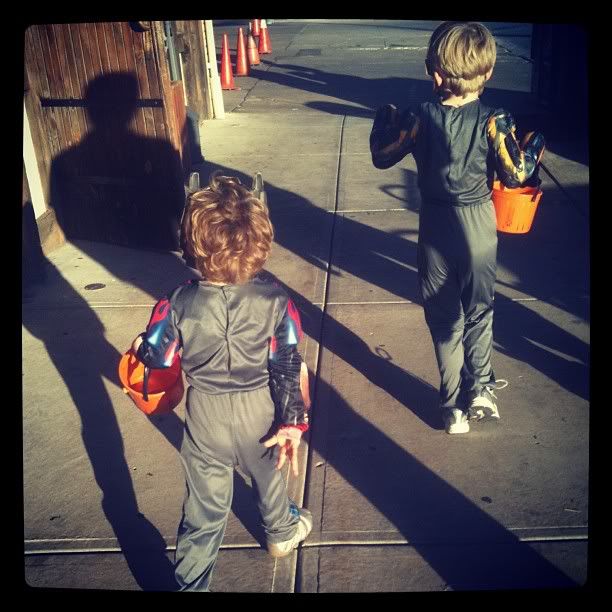We’ve been homeschooling now for 10 months. That’s not long, but it’s been long enough for us to see what works and what doesn’t (for now). As we move forward, things will continue to evolve and change, and we’re feeling more confident that we can roll with them.
What I’ve Gleaned From Homeschooling So Far:
- After we took our kids out of school, we had to do some deschooling. We spent the first couple of weeks letting them play, draw, do artwork, write – and we didn’t call any of it “school”. When a child really dislikes a place you send them day after day, there are some trust issues that also must be worked through, and these issues aren’t always easy to recognize. I still have to remind myself that my children’s feelings are valid and real, and just because they are kids doesn’t mean they can’t feel big emotions. As kids, though, they probably won’t understand them. When first taking them out of school, be armed to the teeth with patience.
- Keep your expectations realistic. Every day may not be a grand adventure. You may find yourselves sitting at your dining room table all day doing school work. Some days you’ll traverse about outside all day, exploring. Some days you’ll stay inside all day playing. Some days, you will need a break, and let your kids go into the backyard for the day. It’s all okay. Balance is key to most things in life. Remember this: learning is always happening. Letting your kids feed their imaginations and take mental breaks is important (for you too).
- Don’t be a meanie. If you read my first bullet, you saw that our kids needed to be deschooled. What our kids didn’t (and still don’t) need was for us to be an intimidating teacher,
possibly akin to the teacher that drove them from school in the first place.Don’t threaten them by saying you will send them back to school. The best way to drive a wedge between you and your children is for them not to trust you. You’re the parent first. Remember that. You are the parent FIRST. It’s okay to hug your child or console them when they are frustrated. This is something they can’t get in school, and will mean so much to them as they get older. When your child feels anxious, sad, scared, or mad, you’re there to help them navigate. It’s one of the best things about homeschooling. - Having a schedule (even if it’s loose) is key for us to do this successfully. With two working parents (I work full time from home), we weren’t sure how this would work. I started making a habit of starting work by 6 AM. Yes, that’s early, but walking 10 feet to my computer in my jammies? Well, it’s not that bad. If Elliott works in the afternoon, he does the teaching in the mornings, starting around 9 AM. If he’s at work at this time, I start the school day at 9 AM. We’ve noticed that if the school day hasn’t begun by 9 AM, or so, we rarely get our groove. From 9 AM until about 11 AM, both kids are fully immersed in school. When they are finished with Reading, Handwriting, Spelling, Language, and Math, they have a lunch and Minecraft/Scribblenauts break. When this time is over, they both have 45 minutes of quiet reading somewhere, alone. If I’m not done with work before this time is over, they play (Lego, outside, Hero Factory, drawing – ANYTHING GOES, except cooking, as I want to have a house still standing at the end of the day). When my work day is over, around 2, we go somewhere or study History together. We are growing various plants from seeds right now, for Science. The schoolwork portion of the day is only 2 or 3 hours. This will get longer as they age and have materials that are more dense. Because the school day is short, we make sure there is plenty to do around the house that doesn’t involve iPads, TV, or computers. While we see value in learning with these tools, it’s not a habit we want our kids involved in for hours and hours a day.
- Don’t compare your kids to brick & mortar school kids. Just don’t. They are not the same. They are not necessarily learning what you’re learning. They are using different curriculums. They may be way behind or way ahead of where your children are. We still keep in touch with our old school friends, and we have friends that are teachers. When we’d meet up, I’d often find myself asking parents what their same-aged kids were learning to see if we were keeping up with school “standards”. I realized, quickly, that Classical Education can’t compare with a standardized curriculum. My kids are doing well. The school kids I was trying to compare them with are doing well, but their education isn’t the same. One benefit of homeschooling is teaching your children to their level. If they’re ahead, they won’t be bored with material they already know. If they’re behind, you can take more time with them, and learn at the child’s pace.
- You make choices for your children, and we make choices for ours. It’s all good. Whether or not your kids are in school or you homeschool, we can be friends/relatives/countrymen. Thank goodness we have free will and the capacity to do what’s best for our own families, right? Our kids are happy and thriving. They are smart, friendly and fun. They are free-thinkers. They are doing well, and I’m sure your kids are too.










Laura where are you? We’ve lost contact. are you not facebooking? Send my your email.